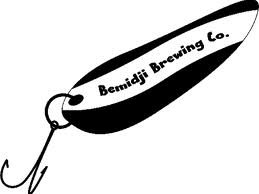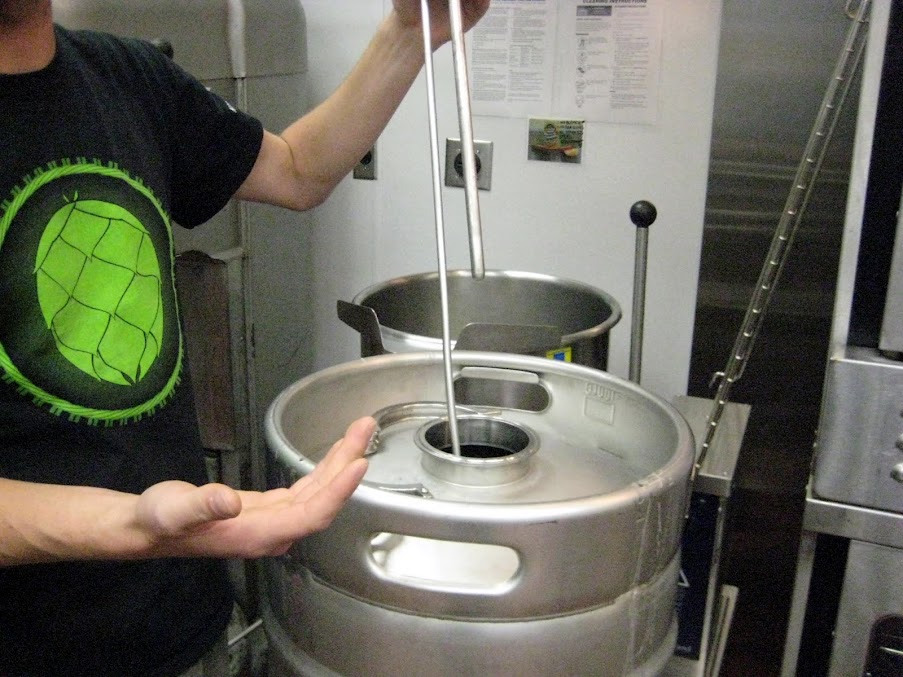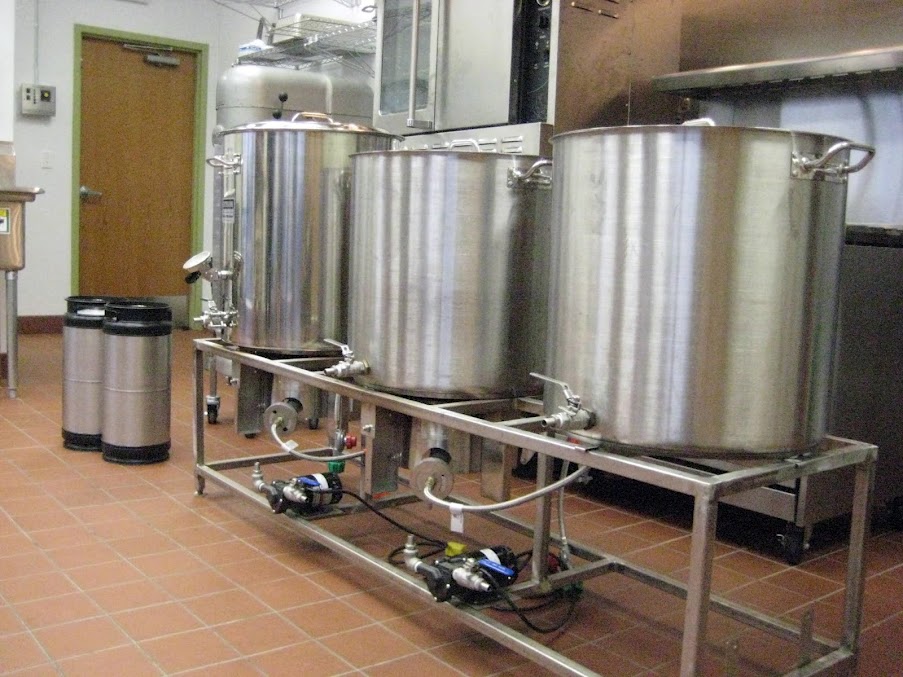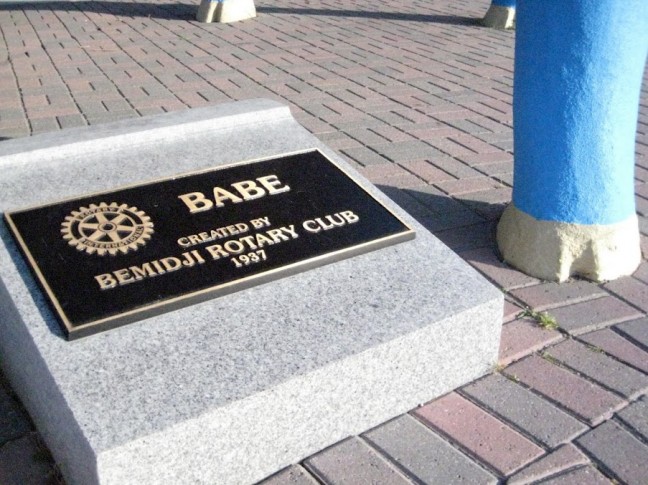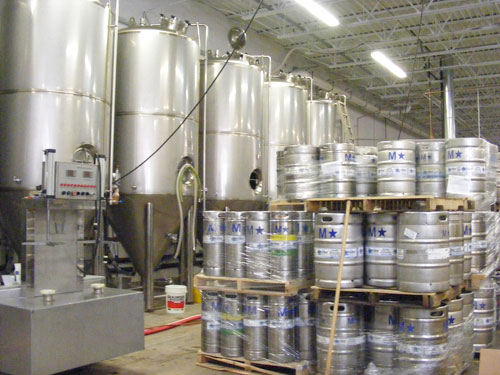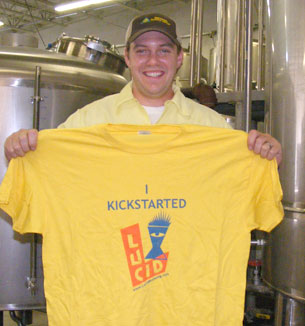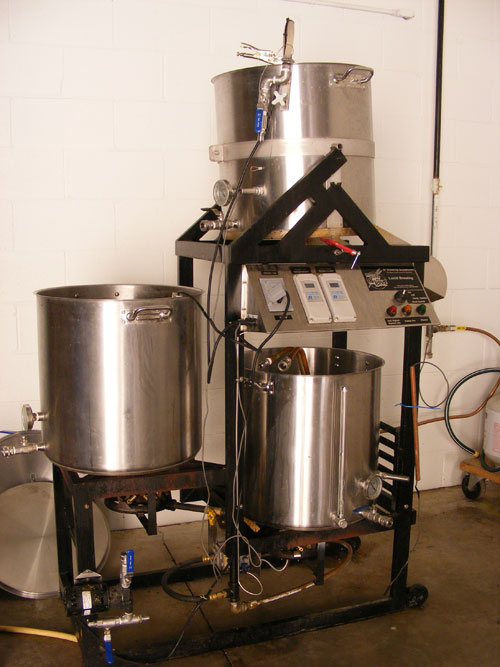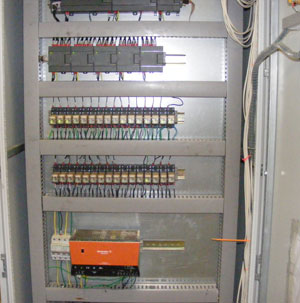Do yourself a favor and spend some time in Bemidji; you won’t be disappointed. It’s a pleasantly bustling, yet relaxed town with plenty of nature around to admire and get lost in. In fact, if you stop by on a weekend you can sample the Mexican-Scandinavian fusion food truck, the Local 303. The novelty of a lefse fish taco made with walleye should alone be reason enough to bring you in, but I’ll give you more: it will soon be the only place to find the beers offered by the Bemidji Brewing Company.
Foundations
The seeds of the Bemidji Brewing Company were sown while Tom Hill, Tina Hanke and Justin (call him Bud) Kaney were in college. There, they experimented with homebrewing and developed a passion for good beer and always harbored an inkling they would someday make a living out of it. Their careers took them, collectively, across the country from Alaska to Rhode Island, Texas to Montana and gave them some great experiences with craft beer. In those years, Tom became a Certified Cicerone and worked at Northern Brewer while Tina and Bud had become well-practiced in community organizing, programming and marketing. Feeling need for a change to the daily grind, the three chose to come back to their Northern Minnesota roots (Tom and Bud are BSU grads) and make their passion for beer into a full-time endeavor. The first step, though, would be getting back to Bemidji. When they decided to launch the business, Tina and Bud were in Missoula while Tom was in Saint Paul. These geographic limitations meant Skype meetings and document sharing were the norm while the three of them hashed out their plan for the brewery. They launched (and successfully funded) a Kickstarter project [see the MNbeer.com profile of the Kickstarter trend here] and their nano-brewery was off and running.
Running in place, that is. With a plan, but without a facility, the three were entertaining the thought of working from a shared-space when, by pure serendipity, Harmony Co-Op in Bemidji opened the doors to their Community Kitchen.
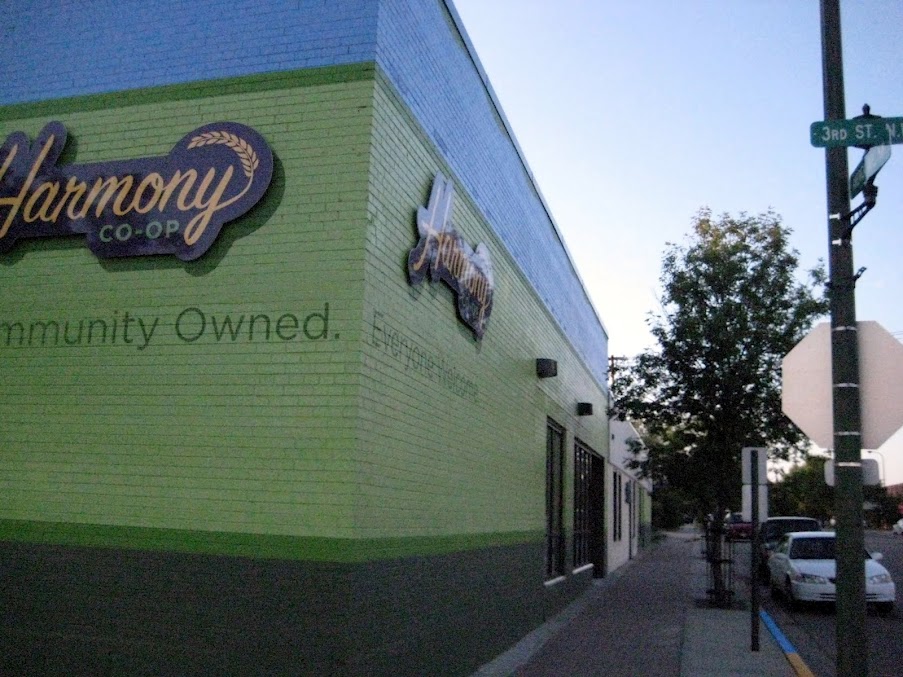
One of the co-op’s visions for the kitchen is to be the extra push needed for a food producer to get a professional business off the ground and Bemidji Brewing’s plan presented a great opportunity for both the brewery and the co-op.
Making it work
This fortune came with a unique twist when it came time to obtain federal approval. The TTB informed them they were the first brewery in the country to operate out of a shared space and as such, required more detailed assurances than normal. Harmony Co-Op proved to be a steadfast supporter and was willing to assist with making necessary adjustments to obtain the federal approval. Working within a shared space means, among other things, Bemidji Brewing needs to clear out at the end of a brew day, so their equipment needed to be nimble, compact and for the most part, portable. They found this in a custom-built steel brewing stand that is equipped with two burners and can hold three 30-gallon kettles. Perhaps most importantly, the entire stand can be loaded in and out as needed. To utilize the available fridge space in the co-op they use 26-gallon keg-style fermenters and a caged area in the existing walk-in cooler will house the finished product.
Finally, the three founders of the Bemidji Brewing Company are back, settled in, and finished with Skype meetings and long trips away from home. The facility is set and the equipment is at the ready. Federal approval came in August 2012 and now with state approval pending, Bemidji Brewing is only waiting to start selling beer and become a success story for the Co-Op’s Community Kitchen.
Expect to see Bemidji Brewing beers on tap this fall at select Bemidji locations. Keep up with the latest on their website and on Facebook.
